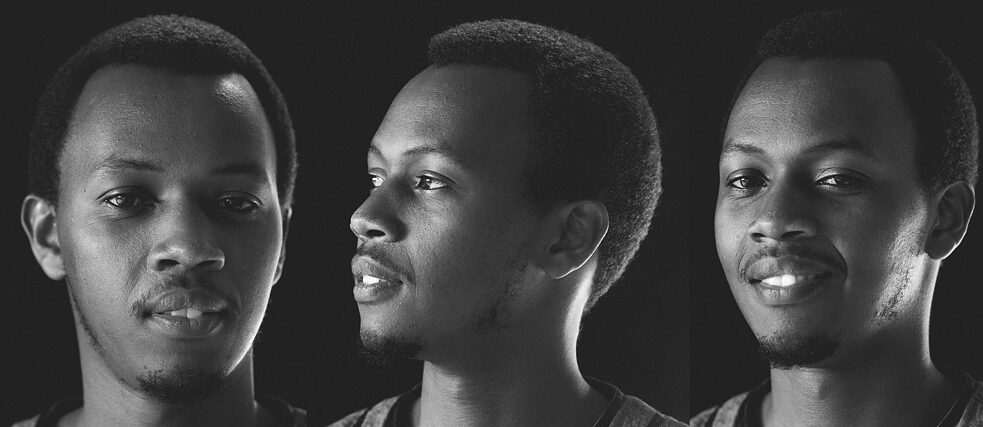Jean Paul Kayumba Cyitatire

Jean Paul Kayumba Cyitatire, a young man who dreams of becoming a philosopher and cultural anthropologist of his society. What does he say about the family?
When I hear the word family, I mean the starting point of all life, both the individual and the entire social group. I mean that it goes even further, and there is something philosophical about it.
Emotionally, family awakens in me the joy (that of having an origin for me), the desire or wish to have one in the image of a family that I know and, at the same time, a certain tension or anguish, because this concept awakens memories and absences.
I grew up in a family with a deceased father, a situation that has become common to many of us from 1994. Our mother covered us, a bit like a hen brooding her chicks in front of an imminent threat. After Dad’s death, an aunt took me into her care so that I could get a good education at a school in the capital, and I was only coming home for holidays.
I witness the happiness of having a father until my 8 years old, who, although he worked in Kigali, and only came home for the weekend, was a man I thought was giant, very handsome, a father who brought joy home and many things from the capital every time he came home. For me, this man embodied power, and learning that he was killed never made full sense in my mind. It’s a subject that still troubles me even though I have been living with this new reality for more than 26 years now.
Mum kept us under her wings, she didn’t like us to go and hang out with other kids, even though we live in the town of Rwamagana, just off the road, we had to stay in the family space, except to go to school or church. The church took up a lot of space in the life of my widowed mother. She invested a lot in prayer but also in the life of her church, especially through the choir, and I think it was also to recreate a bond around her. I was a convinced Catholic, I even went to the minor seminary, and my mother was a Protestant. There was never a clash between us, religion accompanies our lives but could not separate us. My two young sisters joined mummy in her church, but when they decided to get married, they wished to do it in the Catholic Church. It never caused mummy any problems. What matters for us is God, and not the paths we take to get closer to Him.
Big decisions within the family, even if there aren’t many of them, bring us all together, Mum, my two younger sisters, me and my stepbrother, who is very close to us, very often with the addition of Mum's brother, who has invested an important place in the life of the family since Dad’s death.
When it was necessary to search for Dad’s body, exhume it from where it had been abandoned and re-inhumate it, the family had to regroup, and it was this nucleus that was in the front line. It was the same nucleus that first handled everything concerning my sisters’ weddings, which were high-profile events in our fatherless family.
Mum never ceased to keep an eye on us and to repeat to us that we should grow up as worthy children, she told us, “For nothing in the world would I want you to be called the children of a lonely woman” [1]. She never showed us either her sorrow or difficulties in making us live alone. She was young when she was widowed, and never let anyone into her life. She would have had many reasons to want to rebuild her life as a woman, but she devoted herself exclusively to her life as a mother.
Starting a family is not yet my top priorities, but I have people, families who inspire me and who, when the time comes, will be role models for me. The love and attention that a close family gives to its children, to those who come to it, its ability to discuss, to raise children in an atmosphere of openness and independence... I think this is the type of family I would like to be able to create. Of course, the woman I will love and marry, I will offer her the most precious thing I have in the world, which is my family! She will come to a family, mine and those I have been able to win through friendship, so that our children will grow up surrounded by the love of all of them.
I will open the world to my children, I will explain to them my values, aspirations and wishes. However, I will let them choose for themselves, I will only guide and trust them.
[1] In Kinyarwanda “abana b’umugore”, children who have been deprived of parental authority, and who have grown up without discipline. This is a social judgment against which the woman alone fights. It’s a question of honour for her, and for the memory of the deceased husband.